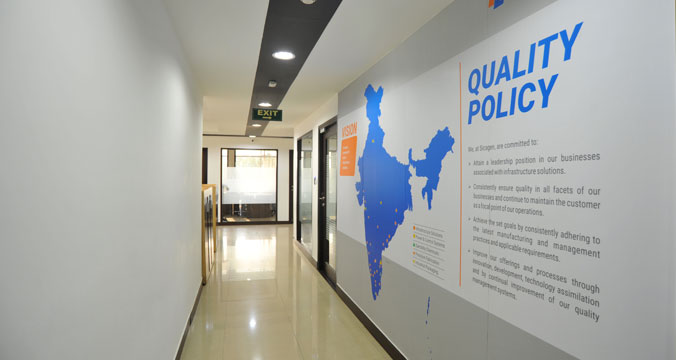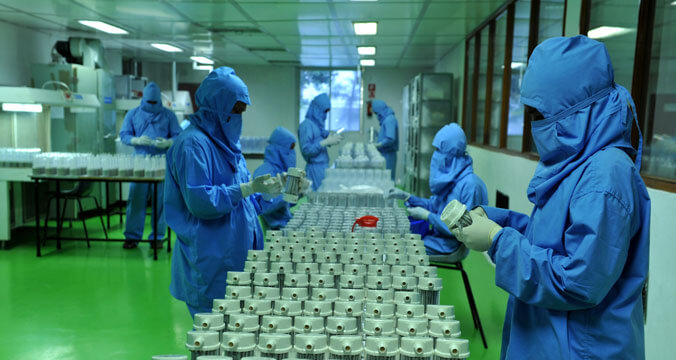
Sicagen: Tiding over COVID-19 with emergency preparedness and BCP
There have been significant implications of COVID-19 in the manufacturing sector. Lower production, uncertainties in logistics, deferred payments, and diminished sales have hit companies’ profitability.
Part of the AM International group, Sicagen is a leading integrated, value-added solutions provider for infrastructure, industrial packaging, and speciality chemicals for water treatment. Realising the extent of this ‘black swan’ event, the company focused on:
- Mitigating business risks
- Protecting employees
- Managing finances to minimise disruption to business processes
When the lockdown was announced, the company contacted the relevant government departments for permission to continue operations for customers who manufactured essential products. Sicagen provides services to the pharma and medical sector. Once the permissions were obtained, a series of actions were undertaken to safeguard employees and minimise obstacles in daily operations. This included the following safety protocols and ensuring transport and food arrangements in various work locations.
Handling supply chain and operational disruptions
Some customers cancelled while others deferred orders. Some manufacturers were unable to deliver materials. A few suppliers refused to amend orders. These challenges were tackled with better stock management and purchase control.
The company has pan-India operations. Demand across different states did not match the company’s production. In some areas, customer orders were not fulfilled as production was hampered due to restrictions in employee and material movement.
Sicagen’s employees who lived far from the work premises found it challenging to commute to work. Service engineers could not uphold their schedule. This was overcome by arranging for accommodation near to factories, telecommuting, and completion of service requests remotely.
How Sicagen’s BCP and emergency readiness mitigated the impact
Having witnessed frequent disruptions to business operations, the company had developed a comprehensive business continuity plan (BCP).
We have an established emergency response team that updates the business continuity plan as per the emergency, risks, and other variables. Thus, we began to implement emergency measures immediately,”
reveals J Prasanna & N Varma, Business Head, Sicagen.
Sicagen implemented job rotation and on-the-job learning across departments. Thus, many of its employees could manage tasks that were not their core responsibilities. The company prepared schedules such that different groups of employees could come to the office premises on different schedules and manage all tasks seamlessly. The commitment demonstrated by employees helped fulfil all customer orders.
A robust digital infrastructure
The company’s IT System was scaled-up quickly to support more processes and employees. High bandwidth, VPN infrastructure, authentication, and access control mechanisms supported peak traffic. Most of the Employees were provided with laptops, modems, etc. and trained in using virtual tools of communication to enable them to operate from remote locations. The company setup payment modes so that collections and payments could be made through RTGS/NEFT.
Virtual lines of communication within the company and with suppliers and customers were established. These lines were even utilised for tele-counselling employees who were distressed or demotivated.
Reducing debt is of paramount importance in such crises.
Chandrasekar R, Whole-time Director, Sicagen says,
As soon as we realised how COVID-19 was affecting other regions, the finance team revisited company financials so that all employees get their wages and salaries and do not bear the added burden of financial woes.”
Sicagen boarded all customers and various suppliers on an e-portal so that accounts receivables and accounts payables could be managed. The company classified customers based on their capacity to pay and focused on following up for payments from those with a higher ability to pay. Sicagen relaxed some terms of payments and deferred a few payments so that cash inflow continued. The company reduced costs by revising the rent in many facilities and postponing recruitment.
An evolving BCP for the future
Based on supply and demand volatility, the company had to calibrate inventory stock parameters multiple times. It realised that simplistic stock management practices are not enough to achieve competitiveness. Sicagen had to look at demand planning, lead-time compression, and safety stock policies for raw materials, consumables, and finished goods.
Production could not fulfil all the customer orders due to the unavailability of raw materials. Suppliers were not always able to match the demand due to their own challenges. The company partnered with more suppliers and with those near factory premises to minimise risks.
Essentially, Sicagen’s approach to fight the pandemic comprised of:
- Addressing immediate problems with rapid actions.
- Preparing and responding to mid-term issues to sustain business operations.
- Planning and launching initiatives for the long-term to recover from the crisis, take advantage of opportunities, and derive maximum value from the new ways of working.
Looking ahead, Sicagen is continuously evolving its BCP so that the company can mitigate risks and build resilience in the long run.







